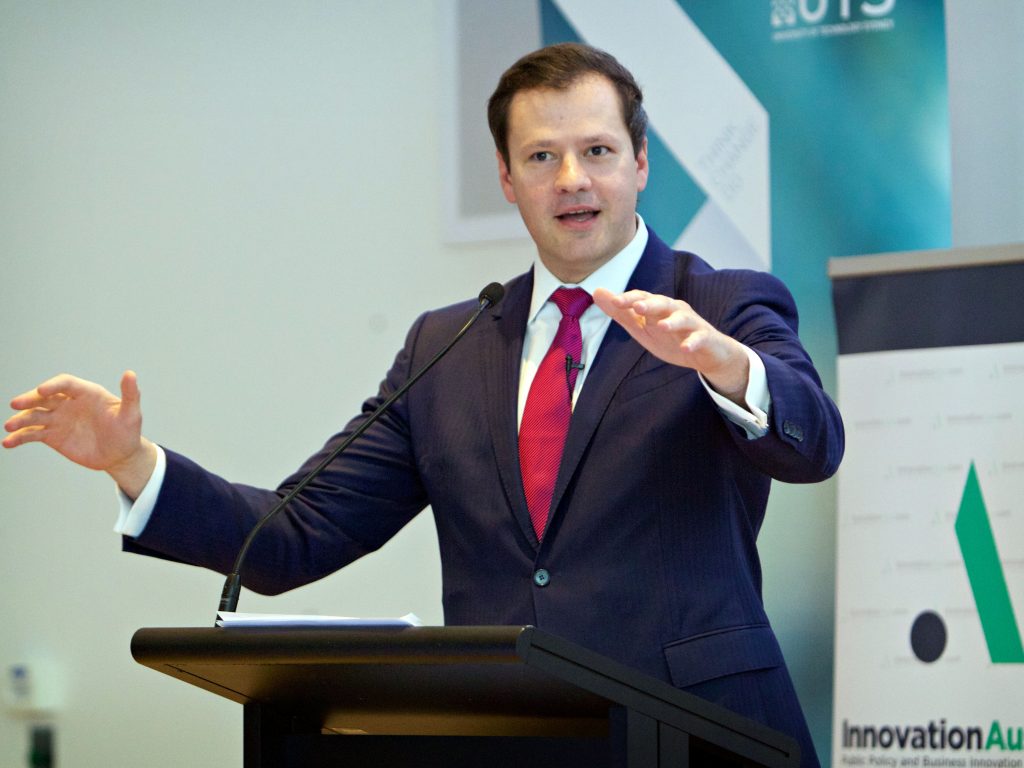The federal opposition has pledged $3 million for the creation of a new Artificial Intelligence not-for-profit research centre that would focus on issues of ethics and the future of work.
Shadow digital economy minister Ed Husic announced the funding commitment at the Australian Financial Review Innovation Summit on Monday.
It comes amid widespread discussion and debate over the role of the government in regulating emerging technologies and ensuring artificial intelligence is implemented ethically and for the benefit of all.

The federal government allocated nearly $30 million in this year’s budget for an AI roadmap and national AI ethics framework being developed through the CSIRO’s Data61 unit.
Mr Husic said a new centre would promote research and industry acceleration of AI. It would be non-partisan, working with state and territory governments, along with union, community, industry and academia representatives.
“AI is shaping up to profoundly change lives and supercharge economies. Other countries have wasted little time recognising this and are actively planning to seize on AI’s potential,” Mr Husic said at the conference.
“Within a nation that reportedly has as many AI researchers as france, we have the Australian brains that can make AI work for us.
“We can’t stumble or scramble our way to success with this. We need to think, plan and act in advance.”
The National Centre of AI Excellence would also feature a newly established advisory group and industry accelerator to “guide broader application of the technology for public and commercial benefits”, with the backing from Sydney and Silicon Valley-based tech firm Akin and local VC fund Reinventure.
The centre would include an AI lab to “champion the development of ethical AI”, and an AI accelerator.
Mr Husic said it’s important that the emerging technology is developed and implemented with a focus on the public good, rather than just commercial benefits.
“At the moment we run the risk we develop and apply within a limited frame of view, where benefit accrues commercially. Yet a breadth of vision is what is needed most – to ensure many gain from the way we use AI, and that we prepare well in advance for impact and transition,” he said.
“At a time where the narrative of the day levers off division and dispute, we think the Centre provides the perfect ground to think and act together for broader benefit.”
He said the centre will encourage governments at all levels to work together to focus on the evolution of AI and plan for its implementation.
“It will band together with the thinking and effort currently being dedicated to AI development and application in different parts of the country and help provide unified direction,” Mr Husic said.
Mr Husic said that 2018 is set to be the next “threshold year” following 2007, which saw internet users hit one billion, and Facebook, Twitter and Airbnb launched.
“While 2007 was the year that a swathe of tech tools emerged…over ten years later, 2018 has emerged as the threshold year for how we use those tools and how they are used on us. This is the year we have seen a sharp shift in views about the way companies and governments use our data, the way we use tech personally and the way tech will be used in our places of work,” he said.
It echoes chief scientist Alan Finkel, who recently said that AI ethics is now a “live political issue”.
“Artificial intelligence is coming on like a freight train. We will look back on 2018 as the year that artificial intelligence really crashed into public awareness, triggering both excitement and concern. I welcome that conversation,” Dr Finkel said.
The Human Rights Commission also last week launched a major three-week project investigating how emerging technologies can impact basic human rights.
Do you know more? Contact James Riley via Email.

